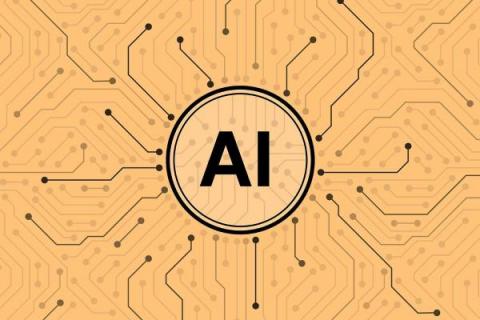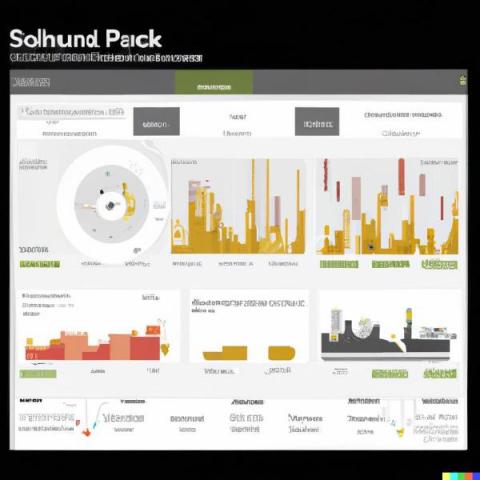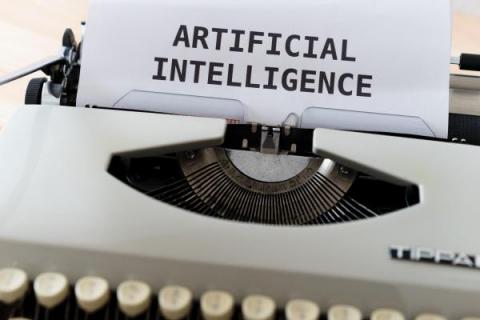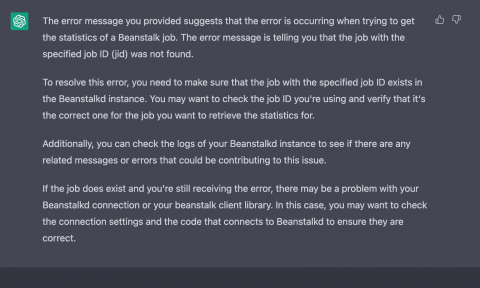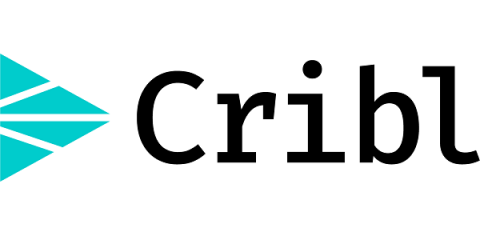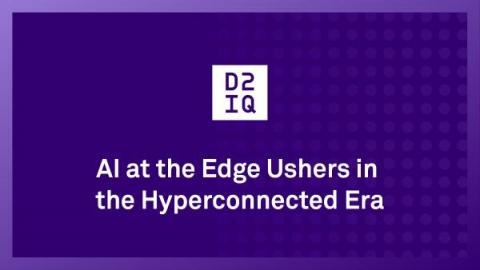Operations | Monitoring | ITSM | DevOps | Cloud
AI
Predictions: AI and Automation
Artificial Intelligence (AI) - or more specifically Machine Learning (ML) - and automation were big topics for many of our customers in 2022. Common reasons for the interest in AI and automation were to: increase efficiency, reduce manual processing, minimise human error and - especially for the use of ML - identify ‘unknown unknowns’.
The Ultimate Guide: Learn The Most Important Things About The Artificial Intelligence Market
Can ChatGPT speed up software error resolution?
One of the hardest tasks for software engineers is often having to stop what you are doing and look into a software bug (error), find the root cause and fix it quickly. This is hard because you may have never seen the affected code (someone else wrote it), it could be code you wrote a long time ago or just the context switching from what you are working on right now.
The Future of Tech: Exploring AI/ML and ChatGPT
You don’t often see real change, but when you do see it you know it. Artificial Intelligence/Machine Learning toolsets like ChatGPT are finally starting to offer broad capabilities that will benefit a mass audience. These tools are moving out of the domain of data scientists and math nerds and into mass markets with a little bit for everyone. The potential reach is awesome and a little scary.
IT In Motion: Security, Cloud, and the Future of AI
AI at the Edge Ushers in the Hyperconnected Era
We have entered the next phase of the digital revolution in which the data center has stretched to the edge of the network and where myriad Internet of Things (IoT) devices gather and process data with the aid of artificial intelligence (AI).
Streamlining Your Git Workflow with ChatGPT: Tips and Tricks for Developers
As developers, we know that working with Git can be a daunting task at times. But did you know that ChatGPT, the large language model developed by OpenAI, can make your Git workflow smoother and more efficient? In this blog post, we’ll explore a few ways Developers can use ChatGPT to work better with Git.
Using ChatGPT + Icinga?
The news have been full of coverage: ChatGPT (Generative Pre-trained Transformer), the prototype chatbot released by OpenAI in November 2022 seems to hail in a new era of information sourcing, schooling and learning, and interacting with a computer. The service sprinted to one million users in five days after the launch, with many more following until this date.


